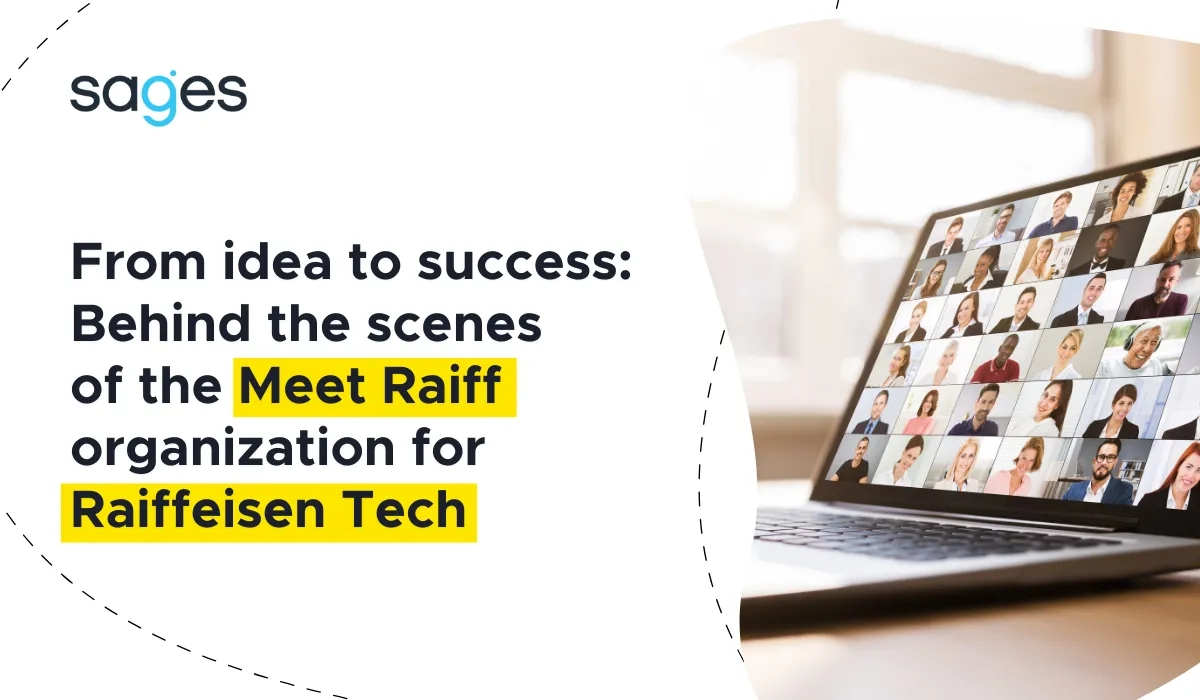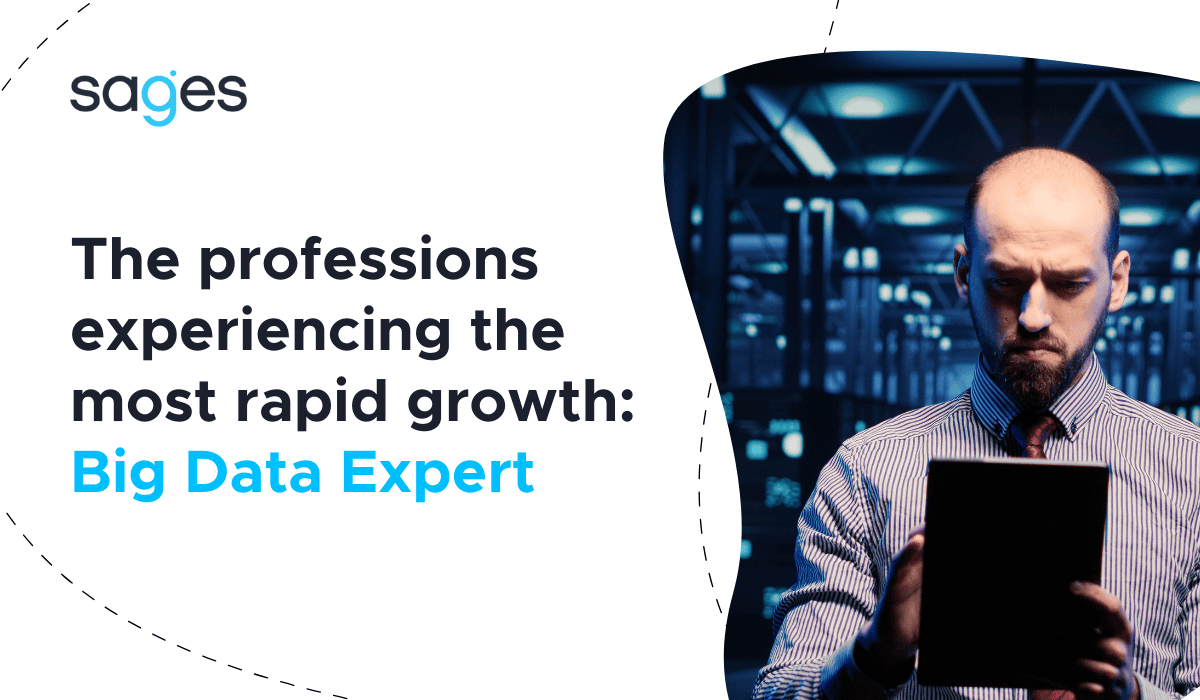Some time ago, a report titled "Worker of the Future" was published by Infuture hatalska foresight institute. It discusses various possible scenarios for the development of the labor market, presents predicted professions that may emerge in the future, and identifies competencies that the authors believe will be key in the labor market. Among other things, the analysis focuses on the evolution of the world as a consequence of increasing digitization. In this article, I will try to discuss the role of data science in the coming reality and explain why the profession of data scientist is not a temporary fad, but a conductor of the coming changes.
The buzzword**"data science**" is not mentioned very often in the report -- it appears exactly... once. This is quite surprising, but after studying the text it will become clear why this is so -- the authors simply use more accessible and commonly understood terms -- primarily referring to artificial intelligence (25 occurrences), which in the report should be interpreted as a creation of the data science industry. On the other hand, two words that can be considered key to the report are robot (more than 70 occurrences including variations -- such as robotization) and automation (appears in the text more than 30 times). And these two words perfectly capture the tone of the report -- the future of the labor market (like virtually all aspects of our lives) will be shaped by ubiquitous (more or less intelligent) robots and systems that automate processes.
A robot educator for the 21st century.
One of the main elements of the report is to outline the profiles of potential professions that will emerge in the future. Among other things, the authors foresee the emergence of such jobs that will involve working with machines endowed with some form of intelligence. In the report, these professions are presented in the form of job advertisements. Thus, for example, a person is sought for the position of "Robot consultant", which is described as follows:
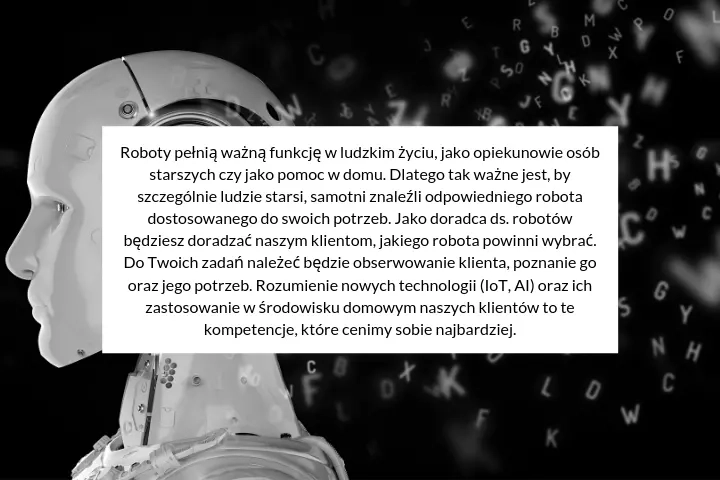
This is a very accurate prediction. It is now standard to advise customers when selling more "complex" products, and since the future will be mastered by intelligent robots, the natural consequence will be the need for people who will explain to buyers how they work and advise on how to choose the right one for us. One could even take this idea further, and I would predict that there will be a need for employees who will be responsible for tuning robots to customer expectations. After all, customizing a product to meet individual customer needs is very profitable in business. And it will probably be hard to make a robot (if at all possible) that will suit everyone. Therefore, it seems very likely that these robots will have the ability to be "adjusted." And then, when a customer wants a robot with a greater sense of humor, it will be necessary to "turn the right screw" so that the robot will know that it is supposed to tell jokes often (and not just any jokes! -- who remembers TARSA from Interstellar?). And when a customer is looking for a robot with which to have a serious discussion about the fate of ancient Greek civilization, the robot should be "tuned" to have interesting non-trivial conversations. And this fine-tuning, of course, would consist here of configuring the "state of mind" (i.e., the algorithms that control behavior) of our digital friend.
Another example position is "Robot therapist" (robot educator) described as follows:
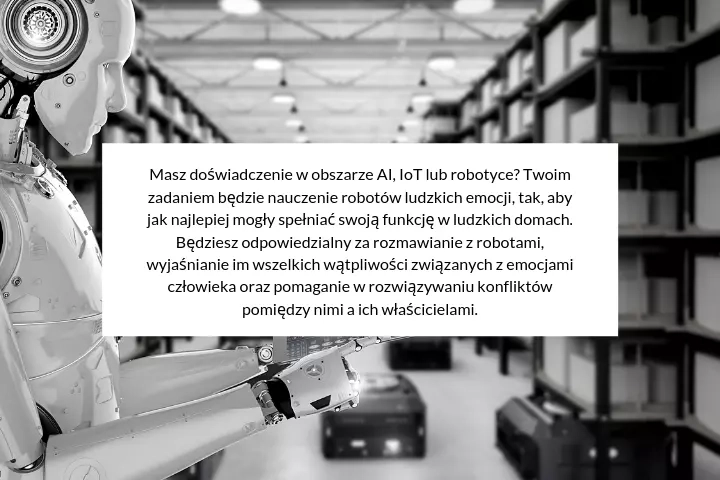
This prediction also sounds very reasonable. There are various algorithms for teaching machines/robots (more generally -- digital systems) and this field is machine learning. Some of these algorithms mimic, to some extent, the process by which living beings learn various activities, such as walking (we are talking about reinforcement learning -- reinforcement learning), and rely, in simple terms, on the fact that learning takes place through practice -- by trial and error, the system invents optimal behavior, just as a child by trial and error learns to walk. This approach can be tried to be applied to the acquisition of many other skills -- such as the understanding of people mentioned in the ad above. So you will need people with whom these robots can interact and thus develop.
The last example we will cite only briefly is the "Wearable & IoT solutions therapist" described as:
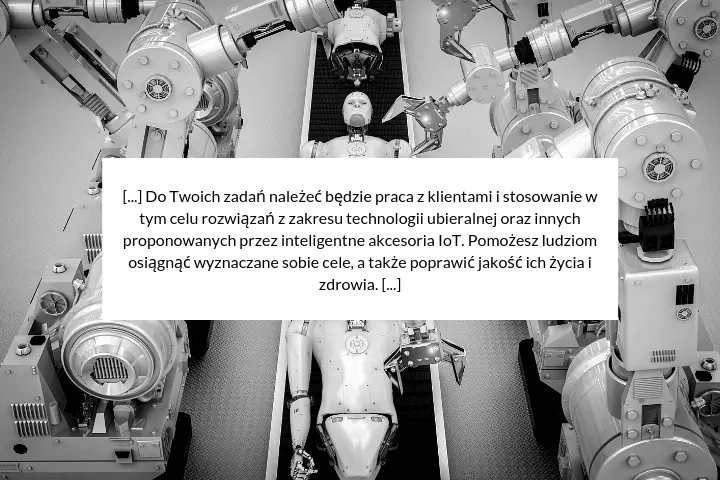
Data science in the new reality
In the report, the authors don't use the term "data science" explicitly, but they do point to the main factors driving change, and among them are "the development of artificial intelligence" or "robots and work automation," which are part of data science. And in fact, this is a field whose development is one of the key factors shaping the new world. The aforementioned professions are examples of work based directly on products created by specialists in this area. And, after all, not individuals, but hosts of specialists will be needed to create these solutions.
Only three examples of professions are listed here, but intelligent robots and systems will undoubtedly be present in every aspect of our lives. For example, a bot in a museum that accurately answers visitors' questions about specific paintings, sculptures or installations; an AI-based application that monitors the behavior of employees in a company to identify opportunities to increase work efficiency; a bot that tracks a consultant's conversation with a customer, analyzing emotions live and suggesting appropriate behaviors to the consultant in order to improve the effectiveness of the interaction. Sound unbelievable? Perhaps, but as it happens, these are not predictions -- they are examples of existing current (!) solutions cited in the report. And the future is sure to bring innovations that we can't even imagine yet.
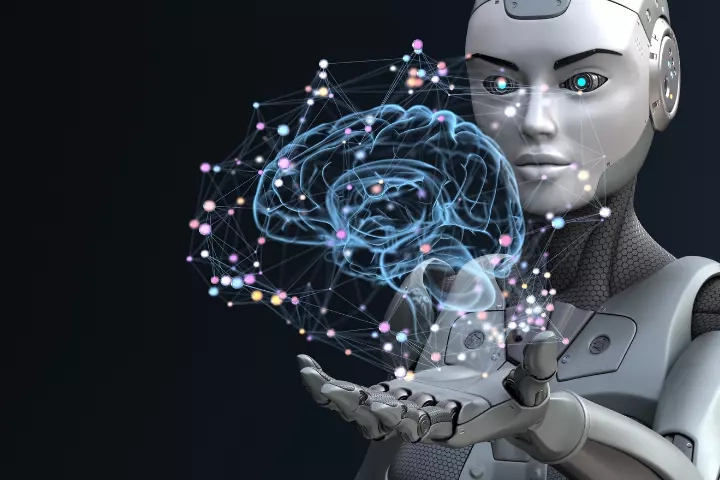
Is it worth becoming a data scientist?
Does this then mean that data scientist is the profession of the future? Yes, but there is more to be said here -- it is also a "profession of the present"! Changes have already begun, and right now the field of data science is shaping the reality around us, and specialists in this area are in high demand. The report cites survey results measuring the growth in demand for various professions. The ten professions with the largest increases are shown in the graphic below.
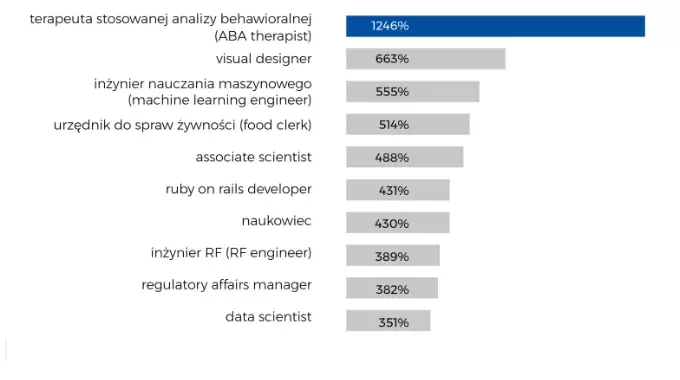
Source: http://infuture.institute/raporty/pracownik-przyszlosci/
Two occupations in the top ten are in the data science industry -- data scientist (up 351%) and machine learning engineer (up 555%). Someone might say that these increases don't mean anything -- it's just a temporary fad, because everyone thinks there's money to be made in it, but it will soon pass. Nothing could be further from the truth. The report in question is not a guessing game -- it was created by specialists and is based on sound analysis. But the report itself is still just one small argument, which alone would not be a significant voice. However, we only need to look around us to see that intelligent systems are taking over our world. And this creates an overwhelming demand for specialists capable of creating them.


